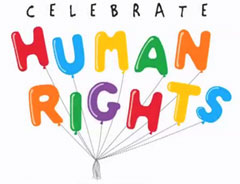Today, the Nobel Prizes are regarded as the most prestigious awards in the world in their various fields.
Except for the Peace Prize, the Nobel Prizes are presented in Stockholm, Sweden, at the annual Prize Award Ceremony on 10 December, the anniversary of Nobel’s death. The recipients’ lectures are normally held in the days prior to the award ceremony. The Peace Prize and its recipients’ lectures are presented at the annual Prize Award Ceremony in Oslo, Norway, usually on 10 December too.
Alfred Bernhard Nobel was born in Stockholm in 1833, and four years later his family moved to Russia. His father ran a successful St. Petersburg factory that built explosive mines and other military equipment. Educated in Russia, Paris, and the United States, Alfred Nobel proved a brilliant chemist. When his father’s business faltered after the end of the Crimean War, Nobel returned to Sweden and set up a laboratory to experiment with explosives. In 1863, he invented a way to control the detonation of nitroglycerin, a highly volatile liquid that had been recently discovered but was previously regarded as too dangerous for use. Two years later, Nobel invented the blasting cap, an improved detonator that inaugurated the modern use of high explosives. Previously, the most dependable explosive was black powder, a form of gunpowder.
In 1875, Nobel created a more powerful form of dynamite, blasting gelatin, and in 1887 introduced ballistite, a smokeless nitroglycerin powder. Around that time, one of Nobel’s brothers died in France, and French newspapers printed obituaries in which they mistook him for Alfred. One headline read, “The merchant of death is dead.” Alfred Nobel in fact had pacifist tendencies and in his later years apparently developed strong misgivings about the impact of his inventions on the world. After he died in San Remo, Italy, on December 10, 1896, the majority of his estate went toward the creation of prizes to be given annually in the fields of physics, chemistry, medicine, literature, and peace. The portion of his will establishing the Nobel Peace Prize read, “[one award shall be given] to the person who has done the most or best work for fraternity among nations, for the abolition or reduction of standing armies, and for the holding and promotion of peace congresses.” Exactly five years after his death, the first Nobel awards were presented.
Source: wikipedia.org | history.com


